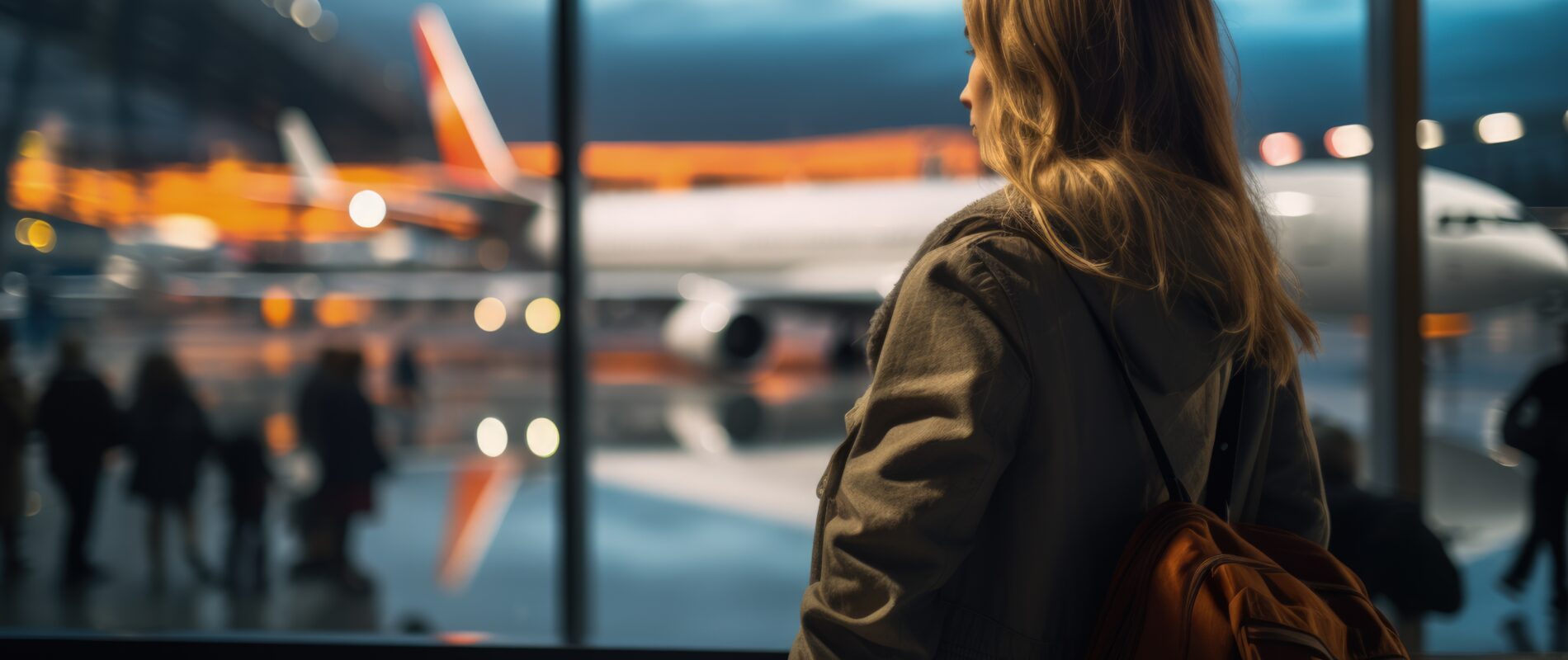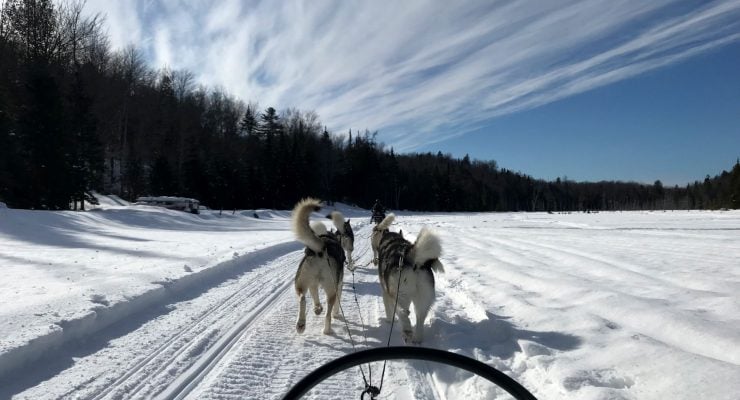Sadly, all good things must come to an end and Working Holiday Visas (WHVs) are no exception. In the same way that settling in a new country requires organisation and lots of admin, so too does leaving the country. As your WHV comes to an end, here are the most important things you need to do to tie up any loose ends before you travel onwards (perhaps to another country or perhaps to return home).
1. Respect your visa expiration date
Overstaying your visa by even one day can impact not just future visas in your WHV country, but also visas for travel to other countries. Make sure you know the exact date your visa expires on. Plan to leave the country at least one or two days before this date—you never know when you might experience a flight delay or cancellation, and you don’t want this to cause you to illegally overstay.
If you aren’t ready to leave your WHV country yet, you’ll need to make sure you have lined up another (legal!) means of staying. If you just want to travel and don’t plan on working, you may be able to apply for a tourist visa. Otherwise, you will need to see if there are other work or study permits you are eligible for.
Ensure you have applied for your next visa/permit well before your current WHV comes to an end. Be prepared to leave the country if your current WHV expires before you’ve received a decision. Some countries offer a bridging visa that you can apply for, which may allow you to stay (without working rights) while you wait for the decision on your original application.
Take a look at some of the other options for available visas on our website; just filter by your destination country.
2. Inform your landlord
Depending on the terms and conditions you agreed to when you moved into your accommodation, you will probably need to give your landlord advance notice, either several weeks or months before you plan to leave.
You can ask your landlord or agency for a reference stating that you have consistently paid your rent and been a good tenant during the entire period of your stay. This could be useful when looking for your next place to live.
Keep proof of payment for your accommodation (bank statements, receipts, etc.) and photographic evidence of the condition you left the property in. Some landlords will give you a cleaning checklist and you’ll need to prove you completed all the tasks on this checklist before their inspection. This could help you in case of any disputes over claiming back your deposit.
Note that in some countries, it is not guaranteed that you will receive 100% of your deposit back. For example, in Japan, the landlord/agency will keep a portion for a cleaning fee, even if you left the property spotless. In Canada, they will often put your deposit towards the last month’s rent rather than paying it back to you. Research local regulations and know your rights.
3. Sell or donate your belongings
Whether you splashed out on a bike/car/van or you had to buy furniture for your apartment, chances are you’ll have items you need to sell before you can leave the country. Facebook groups or Marketplace are a good place to quickly offload items, especially in backpacker groups to other WHV-holders just starting out on their journey.
Otherwise, you can find out which popular websites locals use for buying and selling, such as Craigslist or Kijiji in Canada, Gumtree in the UK or Australia, or Trade Me in New Zealand. For smaller items like excess clothes and shoes, you can consider donating them to charity.
4. Close your bank account
If you are leaving your WHV country for good, you may want to consider closing your bank account. Closing a bank account is usually quite simple. All you need to do is go to your bank with a form of identification (preferably the ID you used when you opened it) and explain that you want to close your account because you’re leaving the country.
You will then have the choice of making a transfer to another of your bank accounts (expect to incur international fees) or withdrawing your money in cash. You can also ask a trusted friend or family member to receive the money from your bank account into theirs, and then transfer it to you when you are ready.
Register with
Wise and enjoy your first international money transfer free of charge.
If you need to keep your account open to receive additional funds (final paycheck, bonuses, tax refunds, etc.), remember to check with your bank before you leave the country about the steps for closing your account from abroad.
If you want to keep it running (in case you plan to come back in future), make sure you check the rules before leaving—some banks require you to make a certain amount of transactions each year to prove you are still actively using the account. Others might charge you fees for leaving it dormant.
If you fail to notify your bank that you’re leaving the country, it’s possible that the bank will close your account without consulting you. This could happen when the date on your visa has passed (e.g. this is what happens in Japan) or it could happen after a period of inactivity. If the bank closes your account without consulting you, it’ll be more difficult to reopen your account if you return in the future with another visa to this country.
5. Cancel your mobile phone plan
If you have a phone or SIM contract, consider cancelling it. If you are locked into the contract, it’s still worth letting the telephone operator know you want to leave. They may be able to work out a deal, for example transferring the remainder of the contract to someone you know that could get use out of it (e.g. another working holiday maker staying in the country).
Make sure you settle any final charges you have to pay, so that you don’t incur any debt.
If you have opted for pay-as-you-go, there is no special procedure to follow; the SIM card will stop working when you stop paying for it.
6. Withdraw your pension
Depending on your WHV country, you may be eligible to withdraw any contributions to your pension fund that have accumulated during your time working. For example, Australia will allow you to withdraw your superannuation once your visa has ended. The UK can transfer into a similar pension scheme in your home country. For Canada, you can claim any overpayment on your Canada Pension Plan (CPP) during your annual tax return (unfortunately, you can’t ask to withdraw your pension until you are 60 years old!).
If you are eligible, check how they will pay out your funds, as that will help you determine if you need to keep your bank account in that country open or not.
7. Complete a tax return
Before you leave, find out about the taxes you may have to declare and/or pay in your WHV country. There might be a legal obligation to complete a tax return, either by yourself or by using a tax agent. You will still be expected to file your taxes and pay money if you owe any, even if you have left the country and never intend to return.
The rules will vary depending on the WHV country. For example, working holiday makers in Australia only have to file taxes if they earn more than AU$45,001 in the income year. In Canada, you will only be considered a resident for tax purposes and have to file a tax return if you stay in Canada for 183 days or more in one tax year.
Here are some of the different countries that require WHV-holders to take part in a tax return:
8. Make a copy of all important documents
When leaving a country permanently, it can be tempting to throw away all the papers you accumulate throughout the year (contracts, pay slips, etc.). Keep all documents related to your WHV for at least the initial period when you return home, either as a hard copy or as a scan uploaded safely to the cloud.
Documents from your WHV can be useful for proving what you’ve been up to while you’ve been out of the country, e.g. to prospective landlords, employers or government agencies. Plus, if you ever decide to go back to your WHV country on another visa, you’ll be glad you didn’t permanently get rid of your personal tax number or work contacts!
9. De-register with the consulate
If you registered at the consulate/embassy in your WHV country, remember to de-register before leaving the country. You can do this by contacting the embassy or consulate where you are registered and informing them you are leaving the country.
10. Register for services in your home country
Depending on the rules of your home country and the length of time you’ve been away, you may need to re-register for services offered to its citizens. This could be anything from doctors and dentists to government assisted services, such as unemployment benefits. If you need to replace any ID (e.g. if you switched your UK driving licence for a Canadian licence during your IEC working holiday), remember to apply as soon as possible once you get home.
You might need to find a realtor if you need to secure new accommodation—this is where that landlord’s reference will come in handy! You may also need to find a new job, in which case you might sign up for careers’ guidance or contact recruitment agencies. If you’re unsure of how to go about finding a job with your new international work experience, read our article How to showcase my experiences abroad after a working holiday?
Finally, you may want to consider a support group or therapist who can help you adjust to life back home. You might be surprised to find just how difficult life post-WHV can be, so make sure you have a good network around you. Read The difficulties of returning home after 3 years of travelling for an insight into the feelings you might experience during your transition period.
11. Buy some souvenirs/throw a farewell party
Before you leave, make sure you do something fun to mark the end of your WHV adventure. Organise a party, dinner, brunch, drinks, weekend away, etc. to bring together the new friends you’ve made and say goodbye for now—but not forever!
Consider purchasing a souvenir so that you have something special to remember your WHV country by. Now is also a good time to stock up on any of your favourite foods that you can only find in that country, and maybe even some gifts for friends and family (if you have the space!). Pro tip: if your luggage is already full, stick to items like postcards, stickers, pins and tote bags, as these are all small, thin and light to pack.
If your WHV has left you feeling inspired and maybe even wanting to plan another WHV, take a look at some of our other articles:
















0 comments
{{like.username}}
Loading...
Load more